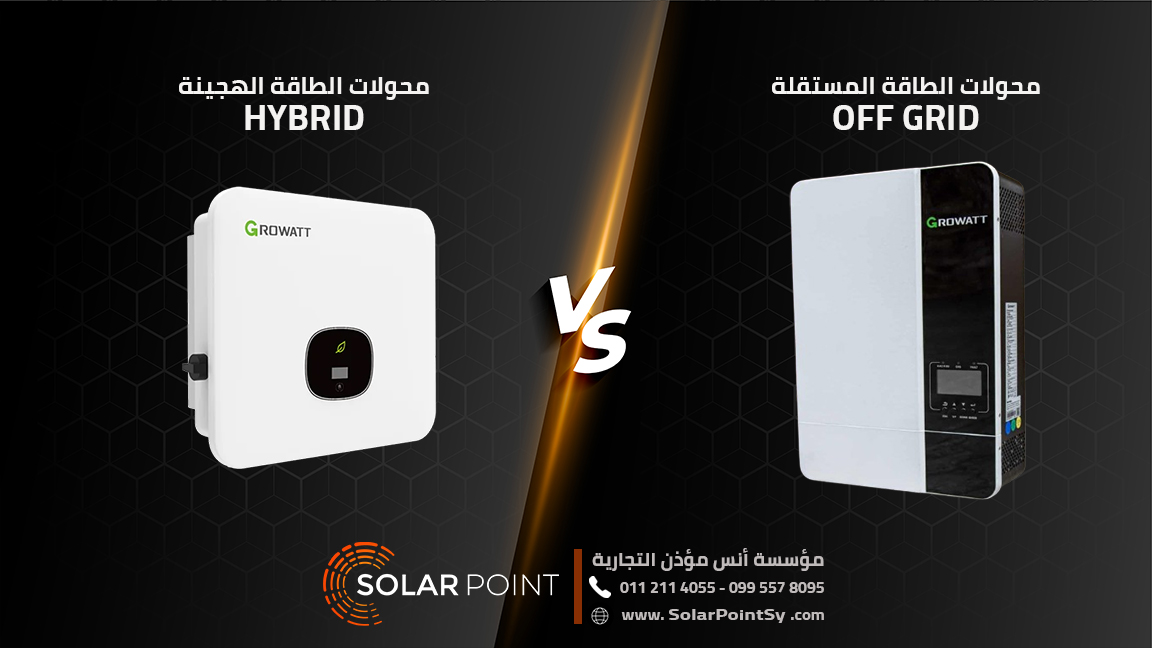Hybrid Solar Inverter VS Off Grid Solar Inverter

The difference between hybrid and off-grid power inverters
Inverters are vital components in renewable energy systems.
They play a key role in converting energy generated from renewable sources such as solar and wind energy into usable electrical energy.
With the increasing use of renewable energy systems, two main types of inverters have emerged:
Hybrid Inverter and Off-Grid Power Inverter.
In this article, we will discuss the difference between these two types of inverters, and highlight their advantages and disadvantages.
First: Hybrid Inverter
Hybrid inverters are systems that combine the advantages of traditional solar inverters and energy storage systems (such as batteries).
These inverters allow energy to be generated from more than one source, including solar energy, energy from the public grid, and excess energy to be stored in batteries.
With this feature, hybrid inverters can provide power to users during times of grid outages, increasing system reliability.
Advantages:
1. Ability to operate electrical appliances in the event of a power outage.
2. Ability to store, which helps reduce energy costs.
3. Ease of adapting to energy load changes.
Disadvantages:
1. Higher cost compared to traditional inverters due to their complex technology.
2. Requires periodic maintenance of batteries.
Second: Off Grid Inverters
Off Grid inverters, as their name suggests, are ideal for users who rely entirely on renewable energy sources without connecting to the public power grid. This type of inverter directly converts the generated energy into usable electricity, and is usually used in remote locations or homes that are not connected to the power grid.
Advantages:
1. Does not require an electrical grid, making it ideal for remote environments.
2. Lower initial investment cost when there is no need to store energy.
3. Reduced dependence on fossil fuels.
Disadvantages:
1. Complete reliance on renewable energy sources, which can lead to power shortages under unfavorable conditions.
2. Additional costs may be required to secure backup power sources.
In conclusion, choosing the right inverter is vital and depends on individual energy needs and geographical location.
Hybrid inverters offer greater flexibility in energy generation and use, while standalone inverters provide an effective solution for users in remote areas.
Individuals and businesses should evaluate the advantages and disadvantages of each system before making a final decision, to ensure they get the best solution to meet their energy needs.
 English
English
 العربية
العربية
